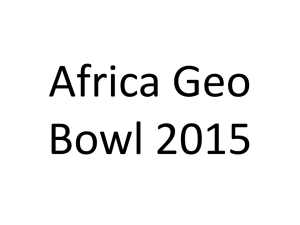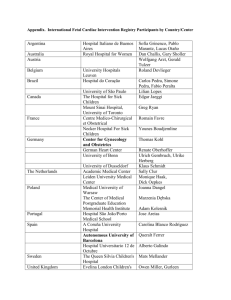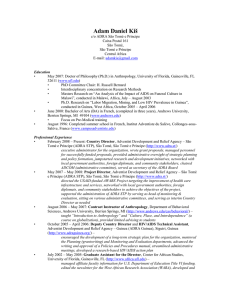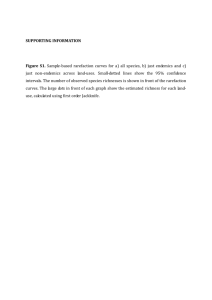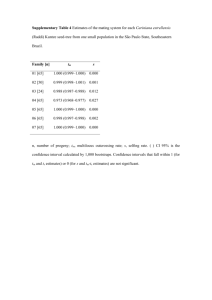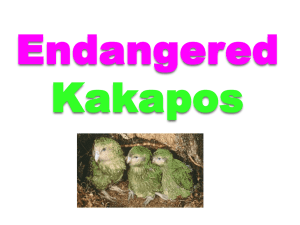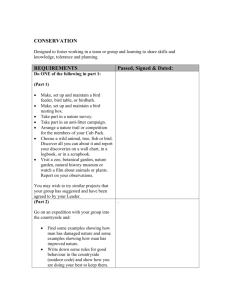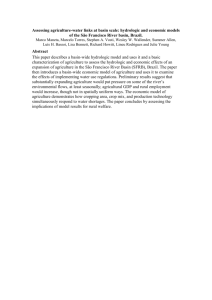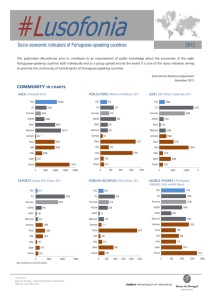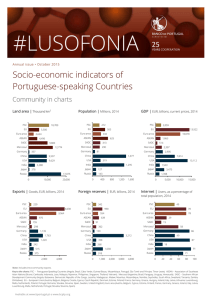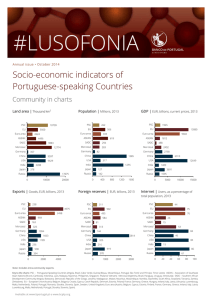Fact sheet - BirdLife International
advertisement
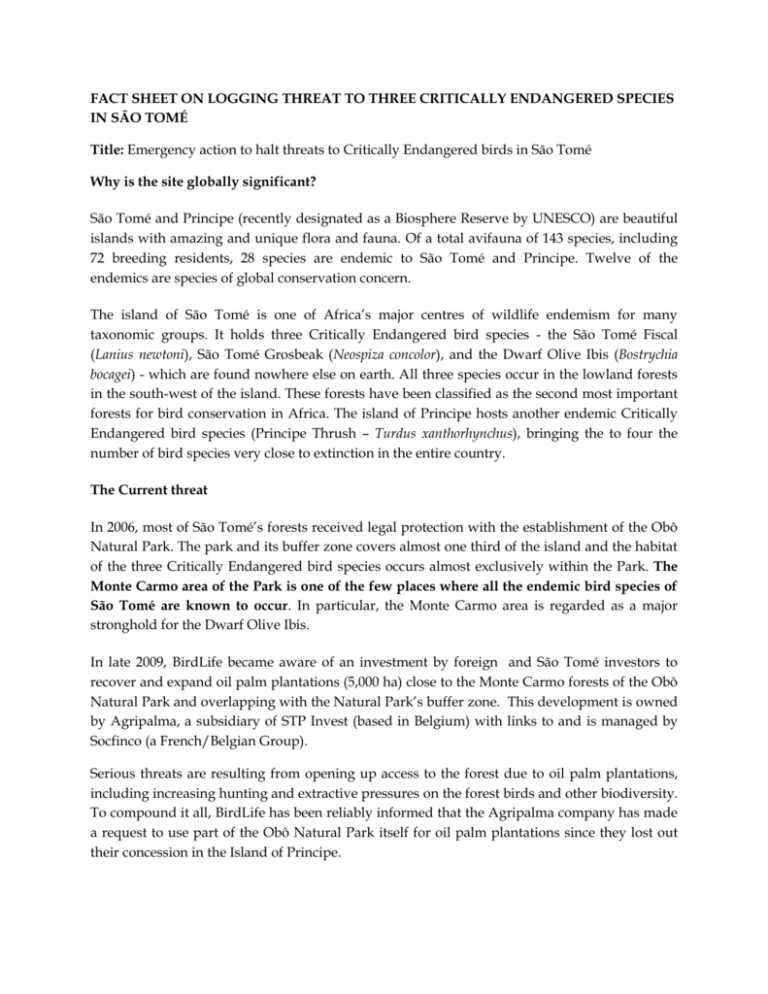
FACT SHEET ON LOGGING THREAT TO THREE CRITICALLY ENDANGERED SPECIES IN SÃO TOMÉ Title: Emergency action to halt threats to Critically Endangered birds in São Tomé Why is the site globally significant? São Tomé and Principe (recently designated as a Biosphere Reserve by UNESCO) are beautiful islands with amazing and unique flora and fauna. Of a total avifauna of 143 species, including 72 breeding residents, 28 species are endemic to São Tomé and Principe. Twelve of the endemics are species of global conservation concern. The island of São Tomé is one of Africa’s major centres of wildlife endemism for many taxonomic groups. It holds three Critically Endangered bird species - the São Tomé Fiscal (Lanius newtoni), São Tomé Grosbeak (Neospiza concolor), and the Dwarf Olive Ibis (Bostrychia bocagei) - which are found nowhere else on earth. All three species occur in the lowland forests in the south-west of the island. These forests have been classified as the second most important forests for bird conservation in Africa. The island of Principe hosts another endemic Critically Endangered bird species (Principe Thrush – Turdus xanthorhynchus), bringing the to four the number of bird species very close to extinction in the entire country. The Current threat In 2006, most of São Tomé’s forests received legal protection with the establishment of the Obô Natural Park. The park and its buffer zone covers almost one third of the island and the habitat of the three Critically Endangered bird species occurs almost exclusively within the Park. The Monte Carmo area of the Park is one of the few places where all the endemic bird species of São Tomé are known to occur. In particular, the Monte Carmo area is regarded as a major stronghold for the Dwarf Olive Ibis. In late 2009, BirdLife became aware of an investment by foreign and São Tomé investors to recover and expand oil palm plantations (5,000 ha) close to the Monte Carmo forests of the Obô Natural Park and overlapping with the Natural Park’s buffer zone. This development is owned by Agripalma, a subsidiary of STP Invest (based in Belgium) with links to and is managed by Socfinco (a French/Belgian Group). Serious threats are resulting from opening up access to the forest due to oil palm plantations, including increasing hunting and extractive pressures on the forest birds and other biodiversity. To compound it all, BirdLife has been reliably informed that the Agripalma company has made a request to use part of the Obô Natural Park itself for oil palm plantations since they lost out their concession in the Island of Principe. What species are of concern? The island holds three Critically Endangered bird species - the São Tomé Fiscal (Lanius newtoni), São Tomé Grosbeak (Neospiza concolor), and the Dwarf Olive Ibis (Bostrychia bocagei) - which are found nowhere else on earth. What BirdLife has done so far? BirdLife International has long recognised the importance of the forests of São Tomé. In 2004, Sao Tome & Principe was identified as a priority for recruitment into the BirdLife Partnership. Since then, a local NGO - Associação dos Biólogos Santomenses (ABS) has been identified as the BirdLife contact organization, collaborative programmes initiated, and continuing efforts made in finding the resources to develop a meaningful conservation programme for the country. This has included support from the BirdLife Preventing Extinctions Programme to ABS to act as the Species Guardian for the three CR species. With BirdLife and funding from the A.V Jensen Charity Foundation, ABS has received bird conservation training and has itself trained local community members in site-based conservation including action plans for the species. An awareness raising campaign has been implemented and field research and monitoring carried out. These conservation gains are now threatened by a potentially catastrophic development which requires an urgent response. Call for action BirdLife International is seriously concerned that if the request for cutting in the park is granted, it could threaten the integrity of this globally important Obô Natural Park and will likely drive the critically endangered species to extinction. This would be a great loss to Sao Tome, as the Park is an important resource for driving socio-economic development at national and local levels. Furthermore, such a move would be contrary to the obligations under the Convention on Biodiversity, which Sao Tome & Principe ratified on 29 September 1999. The Park is also a reservoir for ecosystem services such as water and carbon sequestration, which if managed appropriately can provide abundant and sustained benefits to meet the needs of the poor in São Tomé. We therefore call on the government of Sao Tome to institute appropriate measures by temporarily halting the land clearance activities by Agripalma. Clearing stoppage should be effected in areas surrounding within Obô Natural Park and the surrounding buffer zone until measures are in place which will guarantee the Park’s integrity and to find a permanent solution for addressing the issues of concern are addressed.
